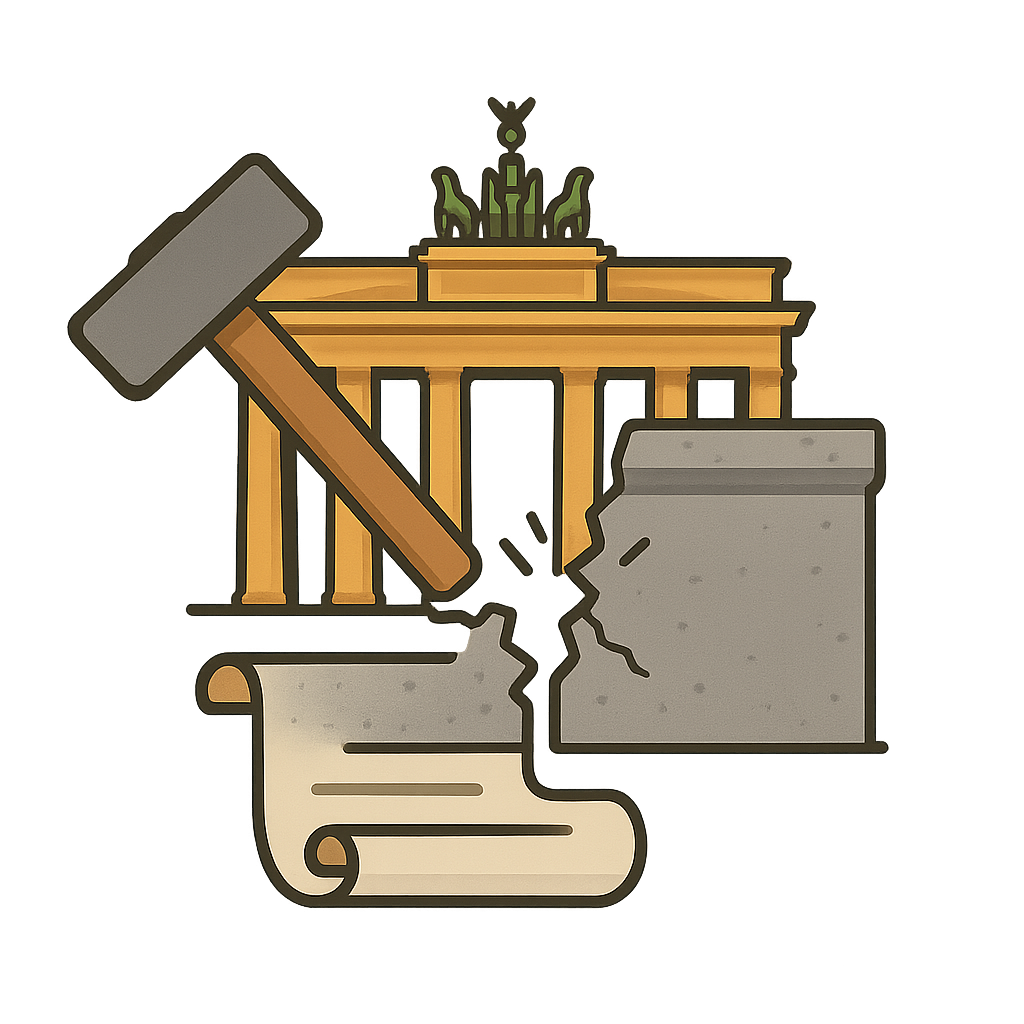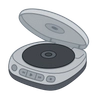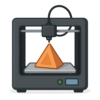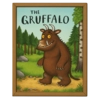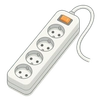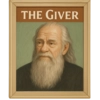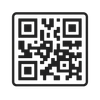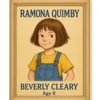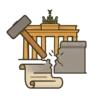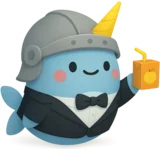Anja's Night of Freedom
My name is Anja, and in the autumn of 1989, I was a teenager whose world was neatly and cruelly sliced in two by a concrete wall. I lived in East Berlin, a city of gray apartment blocks and quiet streets where you always felt like someone was watching. Our sky, however, was the same one that stretched over West Berlin, a place I could only imagine. I would climb to the roof of our building and see the distant glow of its lights, a constant reminder of a world that was so close, yet completely out of reach. The Berlin Wall wasn't just a structure; it was a scar that ran through our city, our country, and even my own family. My aunt and cousins lived in the West, and I only knew them from faded photographs and carefully worded letters. Life in the East had its own rhythm, its own warmth. We had our friends, our school, and the quiet comfort of our family gathered around the dinner table. My parents taught my brother and me to find joy in small things, to read books that opened up worlds, and to hope for a future we couldn't yet see. But that autumn, something was different. A current of change was sweeping across Eastern Europe. We heard whispers from Hungary, Poland, and right in our own country, in a city called Leipzig. Every Monday, thousands of people were marching peacefully, chanting 'Wir sind das Volk'—'We are the people.' Their courage was a tiny spark, and we all watched, holding our breath, wondering if that spark could possibly become a flame that would warm us all.
On the evening of November 9, 1989, that spark finally reached us. My family was crowded around our small television, watching a government press conference. It was usually boring, full of long speeches that meant very little. But then a man named Günter Schabowski, looking a bit flustered, started answering a question about travel rules. He shuffled his papers and mumbled something about citizens being allowed to cross the border. A reporter asked, 'When does that take effect?'. Mr. Schabowski glanced at his notes, shrugged, and said the words that would change history: 'As far as I know… effective immediately, without delay.' A stunned silence fell over our living room. Could it be true? We looked at each other, our eyes wide with a mixture of disbelief and a fragile, fluttering hope. Was this a trick? The phone started ringing. It was our neighbor. 'Are you watching? Can this be real?'. People were pouring out of their apartments, voices echoing in the courtyard below. My father, usually so calm and cautious, looked at my mother and said, 'We have to go. We have to see.' We put on our jackets, our hearts hammering against our ribs. We joined a small stream of people that quickly grew into a river, all flowing in one direction: toward the Bornholmer Straße checkpoint. The air was electric with nervous energy. No one was shouting, but a thousand quiet questions hung in the air. The border guards stood before the closed gates, looking just as confused as we were. They held their rifles, their faces pale under the harsh floodlights. They were shouting into their radios, clearly having received no orders. The crowd swelled, pressing forward, but it was a peaceful pressure. We weren't angry; we were expectant. We were families, students, and grandparents, all waiting for a promise to be kept. For hours, we stood in the cold, a tense standoff between the people and the state. Then, just before midnight, a roar went through the crowd. The white-and-red striped barrier began to rise. The gates were opening. For a moment, nobody moved, as if we couldn't believe our eyes. Then, a wave of pure, unfiltered joy erupted, and we surged forward, carried by the roar of thousands of voices celebrating a freedom we had only ever dreamed of.
My first steps into West Berlin felt like stepping onto another planet. The air itself seemed different, fizzing with excitement. After a lifetime of gray streets and dim lamps, my eyes were dazzled by an explosion of color and light. Neon signs buzzed and glowed, painting the wet streets in shades of electric blue, hot pink, and vivid green. The smells were a whirlwind: the savory scent of currywurst from a street vendor, the sweet aroma of roasted nuts, the unfamiliar perfume of people passing by. Music poured out of open doorways, lively and loud, so different from the state-approved radio stations we had back home. I clutched my father’s hand, my head spinning as I tried to take it all in. The storefronts were like treasure chests, filled with colorful clothes, shiny electronics, and books with covers I’d never seen before. But the most incredible sight was the people. West Berliners had heard the news and had come to the checkpoints to greet us. They lined the streets, cheering and clapping as we walked past. Strangers hugged us, tears streaming down their faces as they welcomed us. A woman pressed a bar of chocolate into my hand, another man offered my father a can of soda. They were crying with us, sharing in a moment that belonged to all of us. It felt completely surreal, like a dream I was terrified I might wake up from. We weren't 'East' and 'West' anymore. On that street, under the glow of the neon lights, we were just Germans, a family reunited after twenty-eight long years of separation. It was a powerful, overwhelming feeling of belonging, of a wound beginning to heal.
The days and weeks that followed were a beautiful, chaotic blur. The Wall, that terrifying symbol of division, was transformed. People came from all over the world with hammers and chisels, chipping away at the concrete. We called them 'Mauerspechte'—wall woodpeckers. They hammered relentlessly, breaking the monster apart piece by piece, turning chunks of oppressive gray concrete into colorful souvenirs of freedom. Artists covered the remaining sections with murals of peace and unity. The wall was no longer a barrier; it had become a canvas. My aunt and cousins came to visit, and for the first time, we didn't have to say goodbye at a heavily guarded checkpoint. We could just walk down the street together, and the simple act of doing so felt like a miracle. It took another year for Germany to officially become one country again, but for us, the reunification happened on that night. That incredible night taught me that even the most permanent-seeming walls can fall. It showed me that the collective will of ordinary people, armed not with weapons but with hope and courage, is the most powerful force for change in the world. History isn't just something that happens to you; it’s something you can make. And no wall, no matter how tall or thick, can ever truly stand against the simple, profound human desire to be free and to be connected.
Activities
Take a Quiz
Test what you learned with a fun quiz!
Get creative with colors!
Print a coloring book page of this topic.

